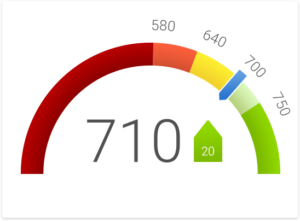 Today’s top story: 6 types of conventional loans all home buyers should know. Also in the news: How your credit score can save you money, why you need to verify your Equifax settlement claim, and why you need to be careful when deciding to claim Social Security based on break-even calculations.
Today’s top story: 6 types of conventional loans all home buyers should know. Also in the news: How your credit score can save you money, why you need to verify your Equifax settlement claim, and why you need to be careful when deciding to claim Social Security based on break-even calculations.
6 Types of Conventional Loans All Home Buyers Should Know
All the details.
SmartMoney podcast: ‘How Can My Credit Score Save Me Money?’
Answers to real-world money questions.
If You Asked for $125 from the Equifax Settlement, You Need to Verify Your Claim
Check your email.
Deciding when to claim Social Security based on break-even calculations? Be careful
 Today’s top story: Taking a “micro trip” before the holidays. Also in the news: Money summits for couples, the best and worst US cities for retirement, and the top 10 most regrettable mistakes retirees made in the 20s.
Today’s top story: Taking a “micro trip” before the holidays. Also in the news: Money summits for couples, the best and worst US cities for retirement, and the top 10 most regrettable mistakes retirees made in the 20s. Today’s top story: How to travel last minute and still get a good deal. Also in the news: Streaming services are the hot new credit card rewards, how college students can make the most of their summer earnings, and how retail credit cards are squeezing the financially vulnerable.
Today’s top story: How to travel last minute and still get a good deal. Also in the news: Streaming services are the hot new credit card rewards, how college students can make the most of their summer earnings, and how retail credit cards are squeezing the financially vulnerable. Today’s top story: Why your credit score isn’t the only gage of financial health. Also in the news: Car buying tips from an undercover salesman, 8 things that won’t hurt your credit, and how to control what could take a big bite out of your retirement nest egg.
Today’s top story: Why your credit score isn’t the only gage of financial health. Also in the news: Car buying tips from an undercover salesman, 8 things that won’t hurt your credit, and how to control what could take a big bite out of your retirement nest egg. Today’s top story: What to do if Hurricane Dorian hits your home and mortgage. Also in the news: How to fall in love with your car again without breaking the bank, drink up savings at Starbucks, and why you should add cash to your car’s emergency kit.
Today’s top story: What to do if Hurricane Dorian hits your home and mortgage. Also in the news: How to fall in love with your car again without breaking the bank, drink up savings at Starbucks, and why you should add cash to your car’s emergency kit.